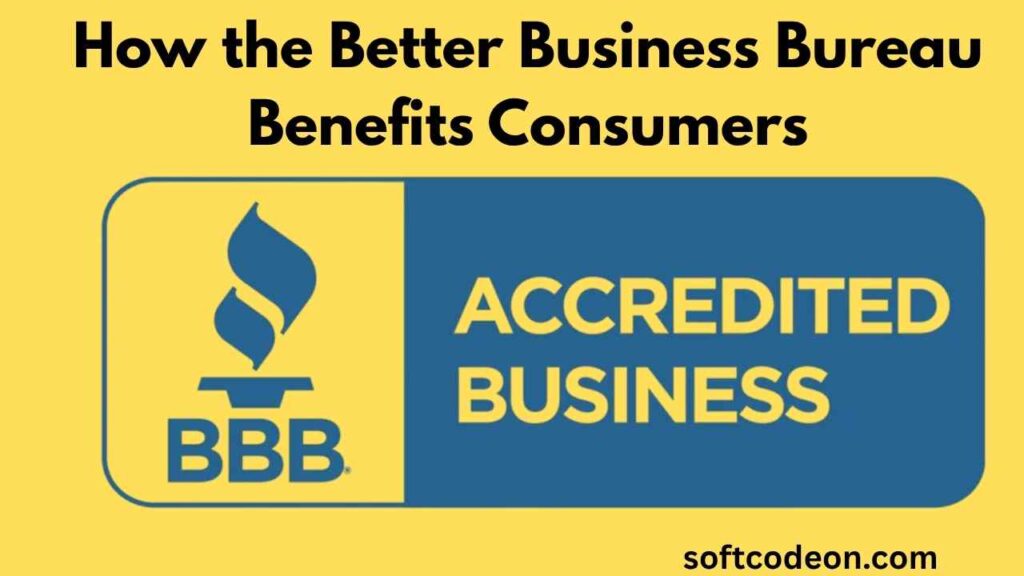Better Business Bureau BBB is the foundation of good business. In today’s busy world, shoppers and companies must verify that they can rely on each other. That’s where the Better Business Bureau (BBB) comes into play. It’s a well-known resource that helps people find honest businesses and protect themselves from scams. As more transactions move online, the BBB’s role gets more important every day.
What is the Better Business Bureau?
The Better Business Bureau (BBB) is a nonprofit organization dedicated to promoting ethical business practices and building trust in the marketplace. It serves as a reliable resource for consumers who want to research businesses before making purchases or signing contracts. By setting standards for truthful advertising and handling consumer complaints, the BBB plays a vital role in maintaining transparency and fairness across various industries.
History and Mission of the BBB
The BBB started in 1912 to fight false advertising and dishonest sales. Over the years, it grew into a network of local clubs across the U.S. and Canada. Its main goal is to build trust between consumers and businesses. The organization encourages companies to be honest and transparent. This helps everyone make smarter choices and keeps the market fair.
How the BBB Operates
The BBB isn’t a government agency. Instead, it’s a nonprofit organization made up of local chapters working together nationwide. Businesses can apply for accreditation by meeting strict standards. Those that qualify get a badge a mark of trust. The BBB also offers resources and support to the business community and consumers alike.
Key Services Provided by the BBB
- Business reviews and ratings
- Complaint resolution services
- Accreditation and membership benefits
- Consumer education and scam prevention tools
These services help consumers make informed choices. They also motivate businesses to operate ethically.
How the Better Business Bureau Benefits Consumers
The BBB equips consumers with essential tools to make confident and informed purchases. Its combination of business ratings, complaint histories, and scam alerts allows people to evaluate companies before spending money. Whether it’s hiring a contractor, selecting a moving service, or shopping online, having access to trustworthy information helps reduce the risk of fraud and ensures better outcomes.

Access to Verified Business Information
When you’re choosing a new company, check its BBB profile first. The BBB provides detailed business data, such as:
- Company history and contact details
- Customer reviews and star ratings
- Any complaints filed and how they were handled
Ratings are based on factors like customer reviews, complaint history, and transparency. This at-a-glance information helps you decide whether to trust a company or look elsewhere.
Read Also: What Is a B2B SEO Agency & Why It’s a Game-Changer?
Dispute Resolution and Fraud Prevention
Filing a complaint with the BBB is straightforward. If you’re unhappy with a product or service, the BBB acts as a neutral party to mediate. Many disputes end with the company fixing the issue or offering a refund. The BBB also shares reports and warnings about scams. These alerts help you recognize schemes before you fall victim.
Consumer Education and Awareness
The BBB offers tips for shopping safely online or in stores. It explains your rights and how to spot dishonest practices. Their educational content boosts awareness about common scams, helping you stay alert. For example, they warn about fake emails asking for personal info or fake websites selling knockoff products.
Advantages of BBB Accreditation for Businesses
Accredited businesses benefit from the BBB’s structured complaint handling process. When issues arise, the BBB helps mediate between the business and the customer, often resolving disputes quickly and professionally. This not only improves customer satisfaction but also shows a company’s commitment to accountability. Responding to complaints through the BBB platform demonstrates transparency and a willingness to make things right traits that customers highly value.
Read Also: How Many Grams Are in a Quarter Pound 100% Accurate
Credibility and Trust Building
Getting accredited shows customers you care about honesty. It’s a badge of integrity that builds confidence. Customers tend to choose businesses with the BBB badge, knowing they’re dealing with a trustworthy company.
Marketing and Competitive Edge
BBB accreditation appears in directories and search results, giving you more visibility. You can also use the BBB logo in your advertising to prove your good standing. Many companies have gained more clients by showcasing their BBB status. For example, a small remodeling firm said being accredited increased their sales by 15% in a year.
Compliance and Ethical Standards
BBB sets standards for how businesses should operate. Maintaining accreditation means following best practices and staying ethical. Regular reviews ensure you keep up with these standards, boosting your reputation over time.
Challenges and Criticisms of the BBB
Some users question how BBB ratings are calculated and whether the process is fully transparent. There have been concerns that companies with unresolved complaints still maintain high ratings, which can confuse consumers. Additionally, critics note that businesses paying for accreditation might appear more trustworthy, even if their customer service record is mixed. These concerns highlight the need for more clarity in how scores are assigned and how consumer feedback is weighed.
Criticisms and Controversies
Some critics say the BBB is too soft on some businesses or favors larger companies. They point out that not all complaints are handled fairly. Others argue the cost of accreditation can be a barrier for small businesses.
Navigating the Limitations
While BBB ratings are useful, they aren’t the only way to vet a business. Check other sources like online reviews and consumer reports. Remember, BBB is a helpful guide, but your own research is essential too. Staying active and responsive in your BBB profile also helps maintain a positive reputation.
How to Use the Better Business Bureau Effectively
Both consumers and businesses can get the most from the BBB by using its tools regularly. Consumers should sign up for scam alerts and newsletters to stay informed about local fraud trends. Businesses, on the other hand, can take advantage of BBB webinars, resources, and trust-building programs to improve operations. Making the BBB part of your routine whether you’re buying or selling helps create a safer, more transparent marketplace for everyone.
For Consumers
Start by searching for the business on the BBB website. Look at their review scores, complaint history, and customer feedback. When filing a complaint, be clear and provide all details. The BBB will try to mediate and find a solution.
For Businesses
Apply for BBB accreditation once you meet their standards. Keep your profile current and respond quickly to reviews or complaints. This shows you’re committed to good business practices. Active engagement can turn negative feedback into a chance to improve and show your dedication.
Conclusion
The BBB plays a vital role in today’s commerce. It helps consumers find honest businesses and supports companies that operate ethically. Using the BBB’s tools and resources makes sense for everyone. Whether you’re buying or selling, a quick check of BBB information can save you time and trouble. Make smarter choices, protect your money, and build a reputation you can be proud of with the help of the Better Business Bureau.

